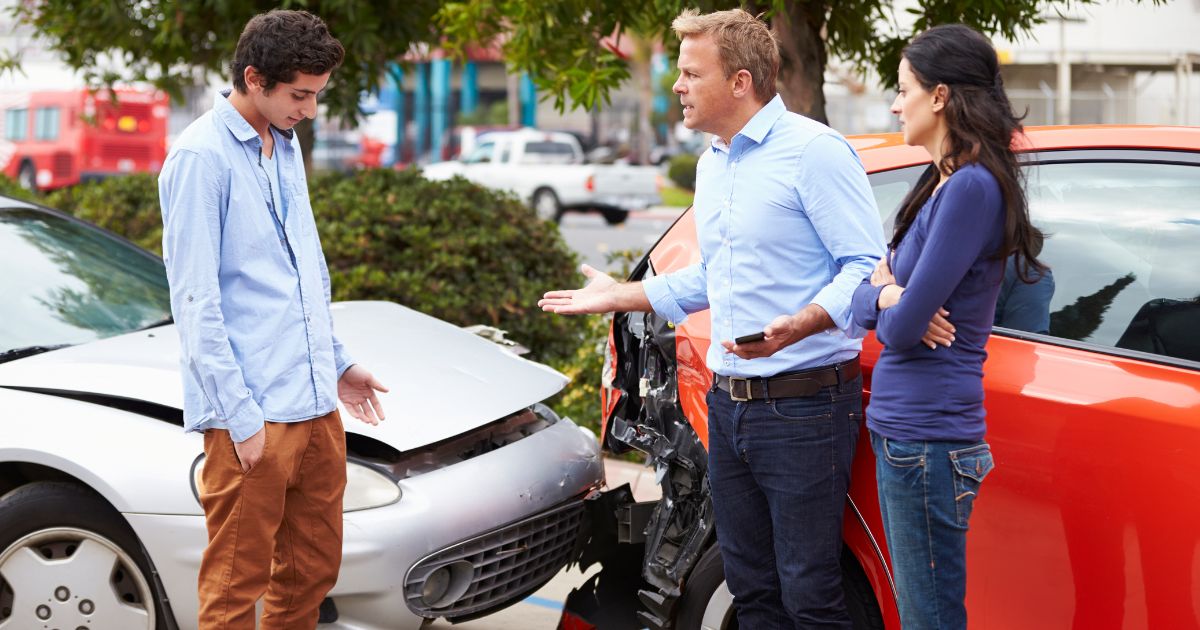Car accidents can be stressful and chaotic, particularly when injuries and property damage are involved. The situation becomes even more complicated if the at-fault driver lies about their role in the accident. This can make it difficult to recover the financial compensation you deserve for your injuries and any other losses you suffered from the accident.
There are several reasons why motorists may lie about their role in a car accident. For example, at-fault drivers often lie about the circumstances of a car accident to protect their interests and avoid an increase in their insurance premiums. They may also fear the costs of a personal injury lawsuit, so they will try to shift the blame away from themselves and onto you. The following are typical examples of things that at-fault driver may lie about when talking to police or their insurance company:
- Speeding
- Distracted driving
- Drowsy driving
- Driving while impaired
- Tailgating
- Failing to use a turn signal
- Cutting you off
- Running through a red light or a stop sign
- Claiming they did not see you, even if you had the right of way
In some cases, the other driver is almost always considered at fault, including rear-end accidents, drunk driving accidents, and left-turn accidents. However, some car accident situations are not as cut and dry, so you must prove that the other driver was negligent. There are four elements for negligence, including:
- Duty of care: All motorists are responsible for obeying the road rules and avoiding unsafe driving behavior.
- Breach of care: If the other driver breached the duty of care by driving recklessly or failing to obey the rules of the road, this may be a cause for compensation.
- Causation: You must be able to show that there was a direct link between the car accident and the breach of care.
- Damages: You must prove that the car accident caused injuries that resulted in financial damages.
If you believe that the at-fault driver is denying liability at the accident scene, do not argue with the motorist or convince them that the car accident was their fault. The following are examples of steps you can take to protect your rights and ensure that you recover the damages that you deserve:
- Call the police. When you call 911 to report the accident, police will arrive at the scene and get a statement from you and the other driver. Often, this document will include valuable information about who was at fault for causing the accident. Ensure you obtain a copy of the police report.
- Take pictures of the accident scene. While you wait for the police to arrive, take photos of your injuries, the damage to your vehicle, debris or skid marks on the road, and any other pictures that can help prove that the other driver was at fault.
- Seek immediate medical attention. Make sure that emergency medical technicians examine you or go to the nearest emergency room, even if your injuries seem minor. If you fail to do so, the insurance company will likely argue that your injuries must not be severe if you do not find it necessary to get medical attention. This can hurt your claim.
- Talk to witnesses. If there were witnesses who saw the accident happen, they may be able to provide valuable information about who caused the accident. Ask if they would be willing to state what they saw, and ask for their contact information.
- Contact an experienced personal injury lawyer. While you may not need to hire a lawyer for a minor fender-bender, having a skilled car accident lawyer on your side is in your best interest if you suffer any injuries, particularly if the at-fault driver denies liability. A personal injury lawyer can request surveillance footage and traffic camera images to help prove that the other driver lied about their role in the accident. In addition, a lawyer has access to various resources, including accident reconstruction experts, that can help ensure a successful claims outcome.
What if I Was Partly At Fault for Causing the Accident?
Even if you were partly to blame for the car accident, you can still recover damages against the other motorist. However, Ohio is a modified comparative negligence state, which means that the percentage of your shared liability will reduce your financial recovery.
If you were found to be more than 50 percent at fault, you will be unable to recover any damages. Your car accident injury lawyer can pursue the compensation you deserve and protect your rights if the at-fault motorist lies about the events leading up to the accident.
Cincinnati Car Accident Lawyers at Wolterman Law Office Can Help if the At-Fault Driver Lied About Their Role
If you were injured in a car accident and the at-fault driver is denying liability, do not hesitate to contact our Cincinnati car accident lawyers at Wolterman Law Office. To schedule a free consultation, call us today at 513-488-1135 or contact us online. Located in Loveland, Ohio, we serve clients in Hamilton County, Fairfield, Norwood, and Forest Park.


